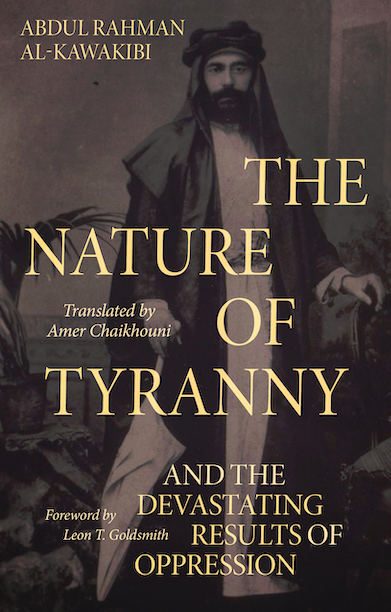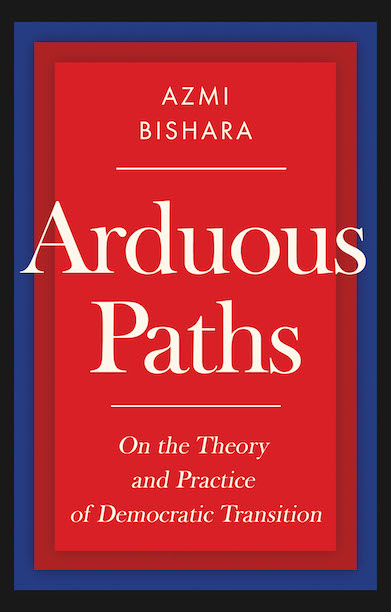The Nature of Tyranny
And the Devastating Results of Oppression
A pathbreaking analysis of tyranny by one of the nineteenth century’s most prominent Arab intellectuals, now published in English for the first time.
Foreword by Leon T. Goldsmith
Translated by Amer Chaikhouni
Description
The Nature of Tyranny was written and published at the dawn of the twentieth century by Abdul Rahman Al-Kawakibi, one of the pioneering thinkers of the Arab world. More than a century later, another Arab awakening exploded, led by a new generation of youth who chanted Al-Kawakibi’s words in revolutionary cries from Aleppo, his hometown, to Cairo’s Tahrir Square.
Today this seminal text appears in English for the first time, with a foreword from Leon T. Goldsmith offering an overview of Al-Kawakibi’s intellectual contributions. The first chapter of the text provides a definition of tyranny, presenting it as akin to a sickness or malaise that seeps into all classes of society, leaving behind decay. The following seven chapters apply this conception of tyranny to what Al-Kawakibi sees as society’s crucial elements: religion, knowledge, honour, economy, ethics and progress. Having laid a theoretical framework for understanding the centrality of tyranny, its characteristics and its devastating effects, Al-Kawakibi concludes by setting forth a brief programme for remedying the ‘disease’ of tyranny. The final chapter outlines another book in which he had planned to elaborate upon his ideas–but, ultimately, his fate arrived too soon.
Reviews
‘An important work of modern Arab political thought which resonates across the more than a century since its original publication and retains the clarity of its message amid the fallout from the Arab Spring. This English translation fills a gap in a literature that remains far too Western-centric.’ — Kristian Coates Ulrichsen, Fellow for the Middle East, Rice University
‘Slowly but surely, the important texts of Arabic thought are being translated as critical editions. Al-Kawakibi’s book stands as an exemplar of the Arab liberal canon. This volume will help to educate readers about the Arabs’ 150-year struggle for responsible government.’ — John Calvert, Professor in the Department of History, Creighton University, and author of Sayyid Qutb and the Origins of Radical Islamism
‘This translation makes a seminal historical text available to English audiences. It demonstrates that Al-Kawakibi’s pioneering thought remains relevant to intellectuals and young Arab generations searching for ideological doctrines to bolster their aspirations for political and social change in the Muslim/Arab world.’ — Fruma Zachs, Professor in the Department of Middle Eastern History, University of Haifa
‘Al-Kawakibi’s classic text has never lost its timeliness. It teems with insights into despotism’s effects on economy, psychology, education, science and religion. This long-awaited translation will help a new audience recognise Al-Kawakibi as a foremost theorist from the Global South.’ — Mohammed Bamyeh, Professor of Sociology and Religious Studies, University of Pittsburgh, and editor of Intellectuals and Civil Society in the Middle East
Author(s)
Abdul Rahman Al-Kawakibi was born in 1854 in Syria and had a traditional education, studying law and learning several languages. His writing on tyranny and injustice in the Ottoman Empire remains influential among reformists across the Arab and Muslim world today. He died in 1902 under mysterious circumstances.






